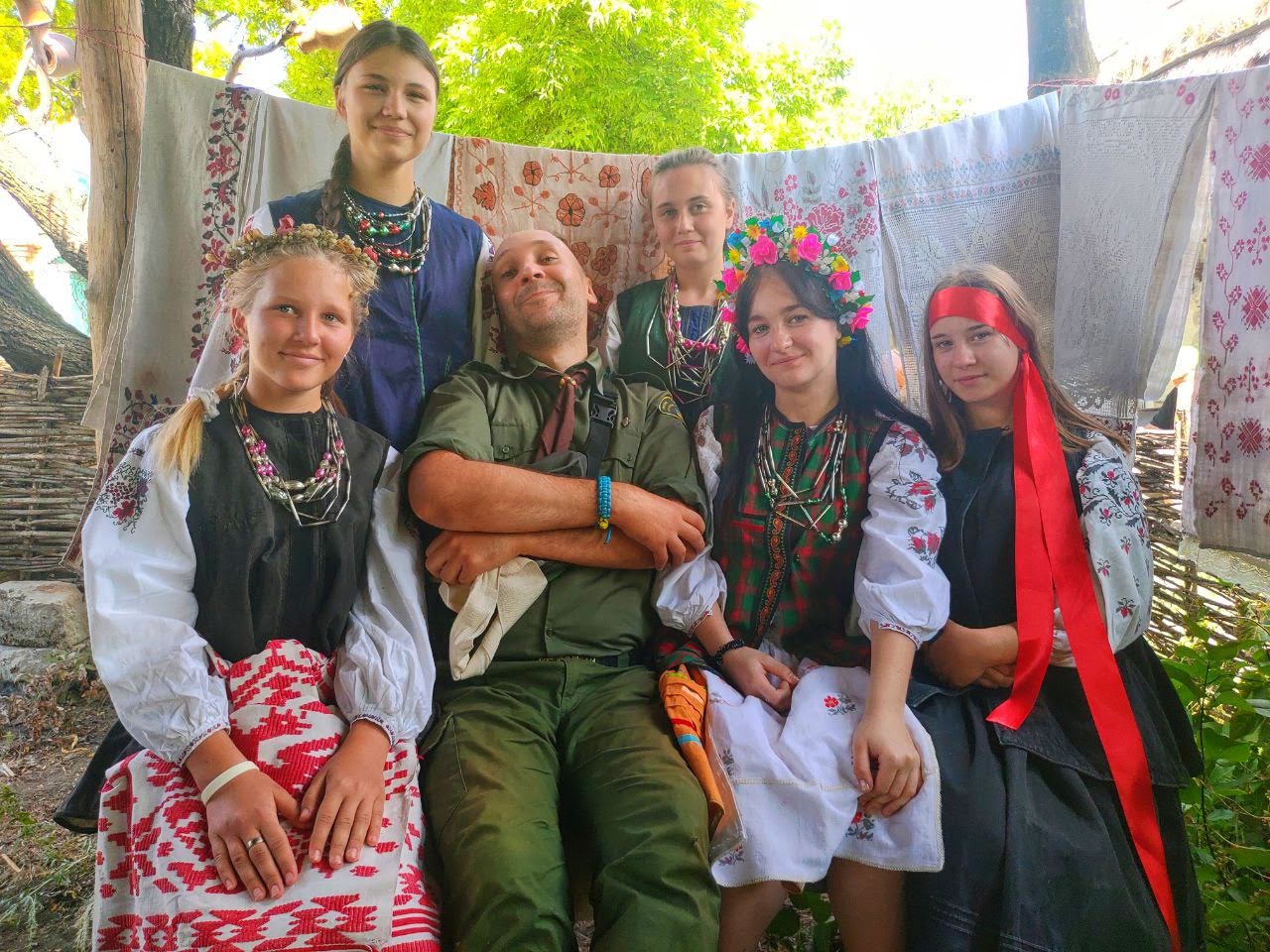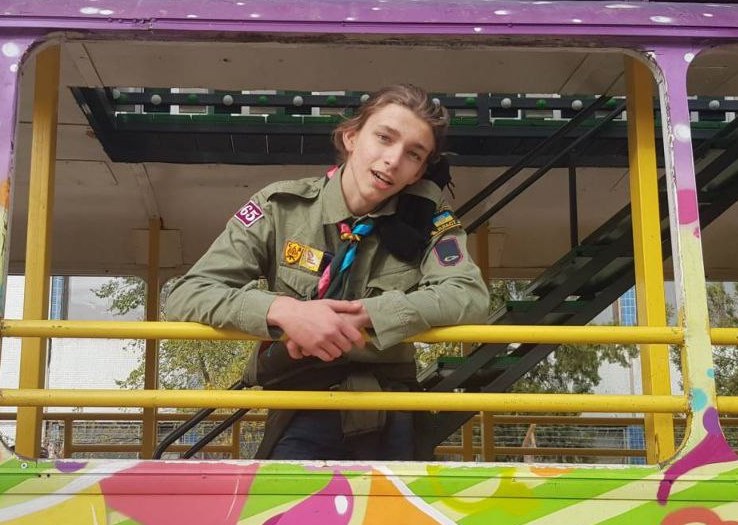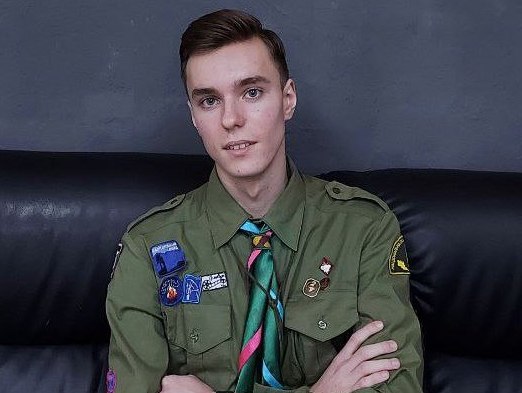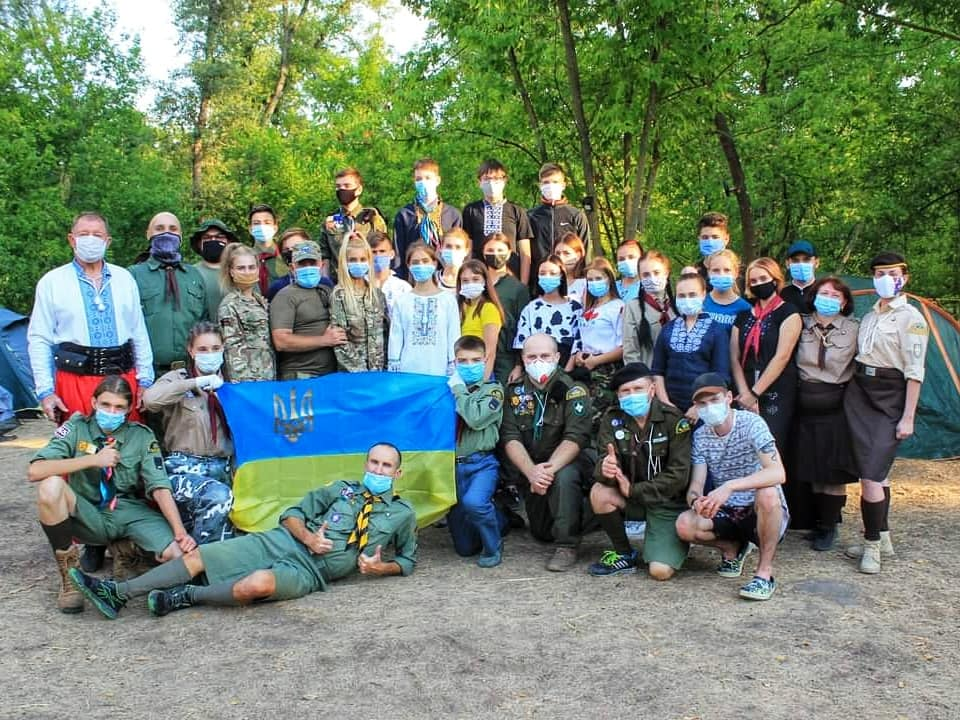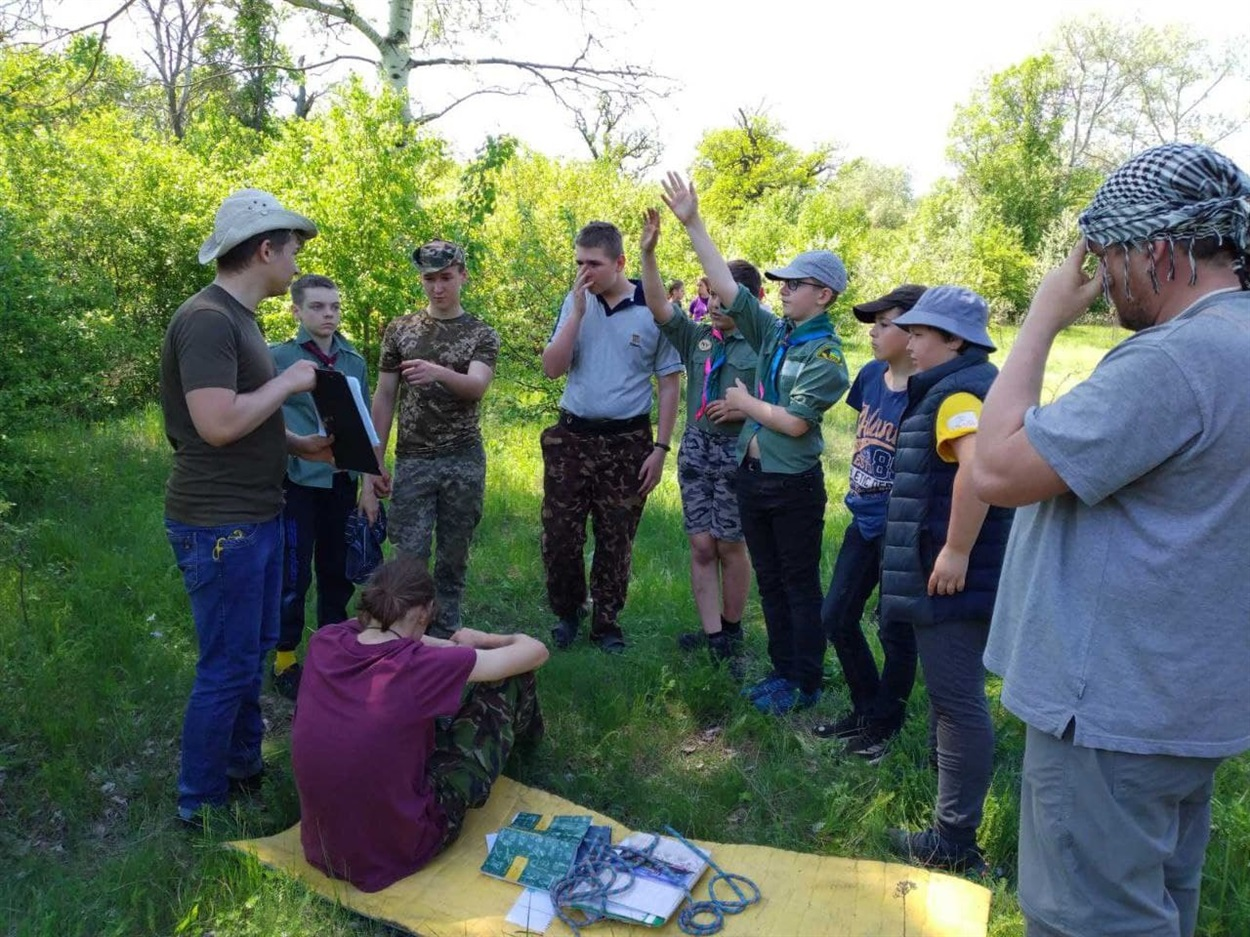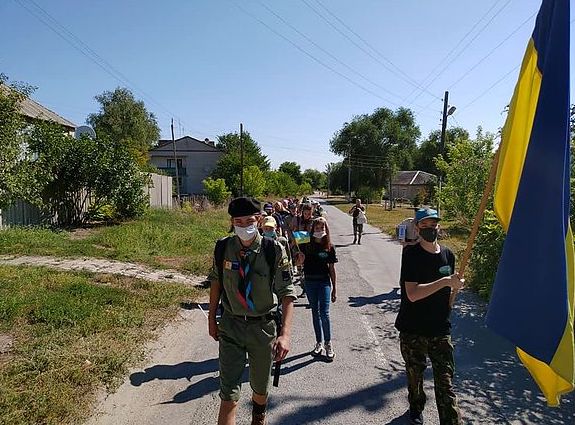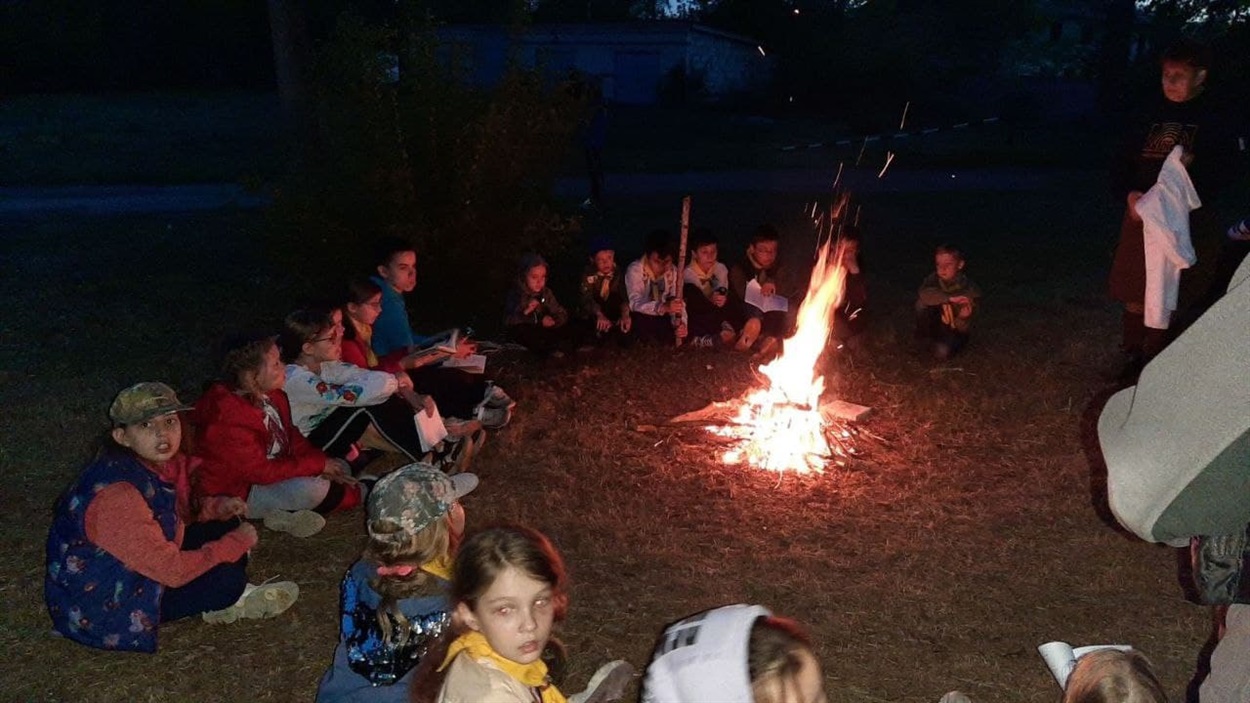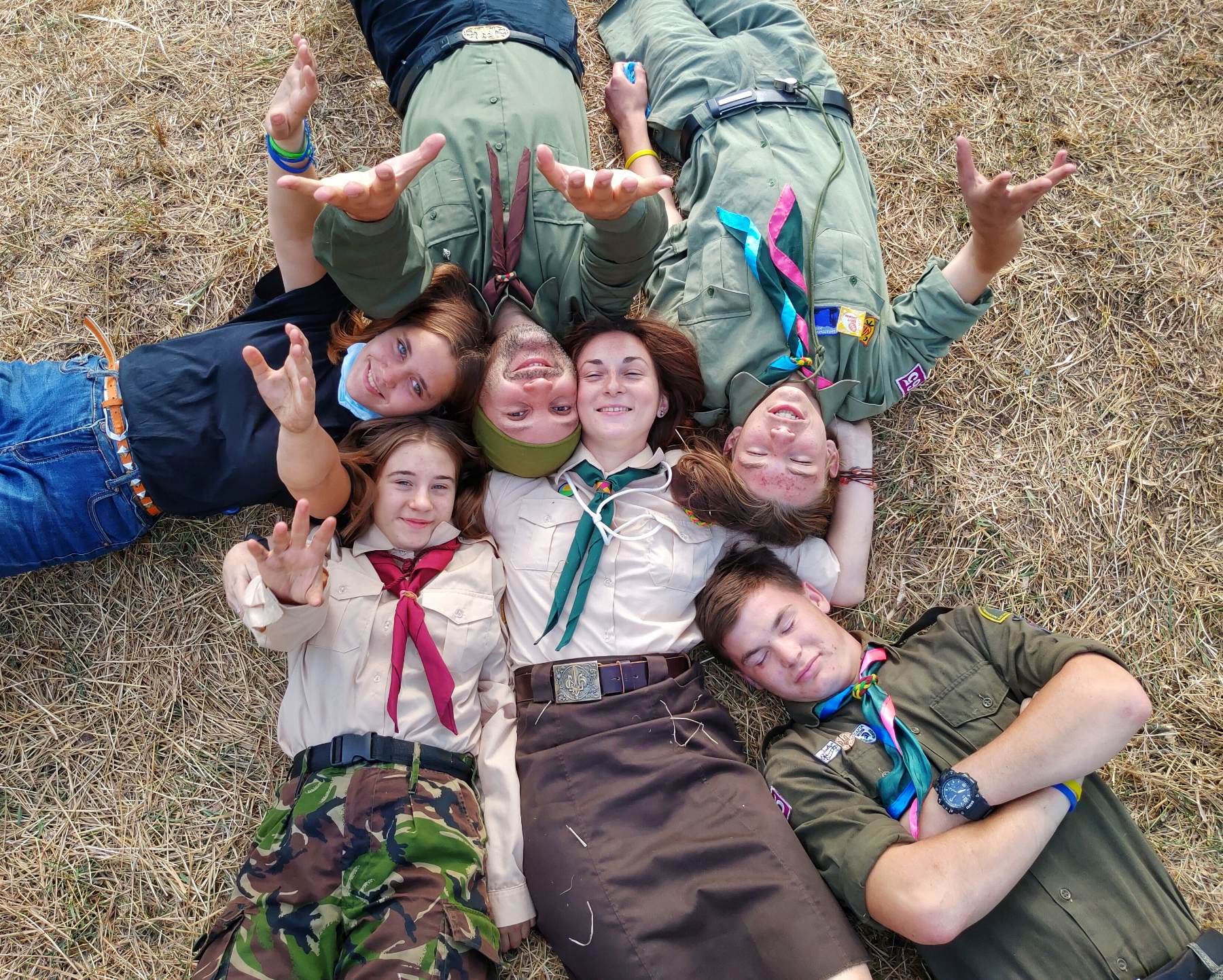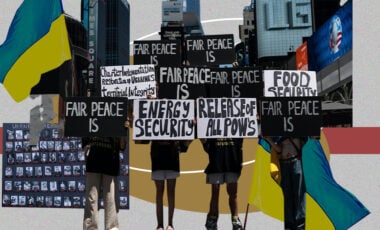"If you want to change Donetsk region, start with yourself": how teenagers from Kramatorsk and Sloviansk created a scout camp
On Unity Day, we tell the inspiring story of two young men who decided to create change by uniting their peers at a summer camp with patriotic values.

What is the problem?
For several generations, the Soviet government instilled in Ukrainians a sense of national inferiority and deficiency. Ukrainians from kindergarten were convinced of the benefits of the "titular Soviet nation." The deliberate spread of Russian-speaking culture, coverage of false history, ridicule of everything Ukrainian… Then there was a real ethnocide.
The advance of all Russian continued with the northern neighbor's efforts after the proclamation of Independence, especially in eastern Ukraine. Such a quiet expansion, in particular, was a precondition for Russian aggression, partial loss of territories, and a prolonged armed conflict.
The task of modern Ukraine is to raise children who will not shy away from the Ukrainian language, culture, and history and will be able to feel like Ukrainians, wherever they grew up, in Lviv or Kramatorsk. And teenagers from the Donetsk region find solutions here! Pupils of the All-Ukrainian National Scout Organization, Plast, prove that any active citizen of Ukraine, regardless of age, can become a change agent.
What is the solution?
It all started with Plast, which aims to the patriotic upbringing of children. Rather, Plast creates an environment and conditions for children's self-education. The leveled program takes the form of a multilevel game where various tasks must be performed for development. The child determines when and in what form to do it. Another feature of Plast is that adult volunteers shouldn't be teachers or educators for children. They are senior comrades who accompany children in the Big Game and share their experiences.
Developing children's creativity and independence is one of the main goals of the program. So when the Kramatorsk branch of Plast raised the question of restoring training tent camps, the main initiators and implementers of the idea were not adults, but children. So two years ago, two teenage Plastuns, Denys Papin and Dmytro Hutsman, created a Steppe Horizon scout camp in the Donetsk region.
How does it work?
"Plast's main idea is to promote comprehensive, patriotic upbringing and self-education of Ukrainian youth. It is important that Plastuns become self-sufficient, be able to take responsibility for their actions, and strive to learn," says the patron, head of Plast Kramatorsk Maksym Potapchuk. "We educate conscious young people, full-fledged citizens, and leaders of society. And in the end, we are raising a worthy replacement, that is, the future Ukrainian nation."
Sixteen-year-old Denys Papin lives in Kramatorsk. He moved here in 2015 when he and his family were forced to leave the occupied territories. His peer Dmytro Hutsman is from Sloviansk. Denys and Dmytro met and became friends in Kramatorsk. Here, under the guidance of educators, the boys underwent a lot of training on creating their projects, not only related to camps but also to improve the environment, social initiatives, projects dedicated to children affected by the Russian occupation.
At first, the guys planned to make an entire plastun camp but then decided to bring together everyone. The peculiarity of the idea was to encourage the scout movement to young people, previously completely unfamiliar with the Ukrainian scout movement.
"The Steppe Horizon project is an interpretation of our experience with Dmytro because we have participated in such camps many times," says Denys Papin. "It helped us a lot, at least in understanding how it should look in practice. But we didn't have organizational experience."
This challenge and the understanding that teenagers aren't trusted prompted the boys to look for adults for their team; for help, they turned to senior plastun members and activists from public organizations.
The friends didn't have the funds to organize the camp. Dmytro independently wrote an application for a grant competition of the Karitas Kramatorsk Charitable Foundation and took up communications. Thanks to the grant, the boys won 20,500 hryvnias. The money was used to buy sports equipment, cooking cauldrons, camping tables, and other small equipment for setting up a tent camp. At this stage, the NGO Greenhouse from Sloviansk helped. The authors of the project signed a memorandum with them on the use of a bank account, because the teenagers didn't have their own. The rest of the funds were financed.
"In the first year, Dmytro and I organized, dividing responsibilities in half, and a month later we found an adult who helped bring everything to mind," recalls Denys. "For the second time, we already had experience, took into account last year's shortcomings, knew with whom and on what issues to consult, so the camp turned out to be more orderly and interesting."
Teenagers asked to head the experienced plastun leader, Ihor Oleksiuk, from Lviv, where they used to rest. He agreed to help and became a commandant in the Steppe Horizon, a man responsible for the entire camp. The location of the camp was agreed with the local government, in cooperation with the police and the emergency service.
"During the preparation and implementation of the project, we improved our skills in community competencies, project management, team building, the interaction between government and youth communities," says Dmytro Hutsman. "We gained knowledge of writing and implementing grants. I was motivated in the project by the desire to change the Donetsk region and I started with myself. I gained valuable experience, both negative and positive. Positive experiences are extremely motivating, but negative experiences are also useful because we learn from mistakes and try not to repeat them. All this gave me many new friends, a certain recognition in society. I proved to myself that I can change myself and change the world for the better.
And did they succeed?
Steppe Horizon patriotic camp is an eco-camp with hints of art: young people in the camp conducted many initiatives to clean up the environment. Thus, the Plastuns collected garbage, helped the residents of Slobozhanshchyna to improve it, and maintained order around the camp. Field games, various engines, fighting hopak, medical master classes, singing patriotic songs by the fire, cooking soup by the fire, and much more were part of the intensive program of the Plast camp. The highlight was master classes in folk crafts and traditions, as well as plein airs on fine arts, mentored by artists from the Donetsk region.
Friends spread information about the camp on social media. Also, for the Steppe Horizon students developed their thematic site, through which you can find all the useful information about the event. Although everyone was invited to the camp, the structure in the Steppe Horizon was left as a scout: commandant, educators, cook, doctor, staff, clerk. Denys Papin a staff, whose function was to monitor the discipline and implementation of the program, and Dmytro Hutsman took over the duties of the clerk, i.e. the person responsible for all documentation.
Both times the camp recruited. In 2020, 31 teenagers aged 12 to 16 immersed themselves in the scout tradition, in 2021, there were 55 people. Almost everyone was from the Donetsk region, in 2020 there was a guy from Zaporizhzhia, and in 2021, two participants were from Mykolaiv. 90% of teenagers hadn't been to Plast before. The main goal of the camp is to create a certain backbone of Plast in the Donetsk region and attract more young people to scouting, the organizers even managed to overfulfill, because 50% of the camp participants have already joined Plast.
The organizers admit that not all of those who want to "relax in nature" have survived an independent life, where you have to work with a shovel, sleep in a tent, and take part in cooking. But Dmytro and Denys aren't offended by them, because "Plast is for everyone, but not everyone is for Plast." Those who liked field life learned a lot of useful things in Steppe Horizon. Proof of this is the response of one of the mothers, who was quoted on his Facebook page by the camp commandant Ihor Oleksiuk:
"On the way home, my son sang Ukrainian songs, told about new friends and his impressions, and regretted that I came for him so quickly. At home, he said that he would take over lunch, cooked porridge, and salad, washed dishes. I'm sure to say that I brought home the better child than I had given away!"
Even more useful solutions!
"If we talk about the benefits of the project," sums up Dmytro Hutsman, "I can highlight the following problems and challenges that we wanted and managed to solve:
- First, nowadays, because of the unstable situation with Covid-19, young people lead a sedentary lifestyle, don't go outside, sit with their phones and other electronic devices. The Steppe Horizon project allowed young people to actively relax in nature, to be distracted from their smartphones for a while.
- Second, it's important to educate young people in national-patriotic and moral values. During the camp, teenagers had the opportunity to strengthen their patriotic values during historical talks (master classes), interesting games, singing, etc.
- Third, we focused on educating our young people in active public opinion, management skills, fundraising, conflict studies, and mediation. In addition, the teenagers acquired vital skills in the camp, namely: the ability to cook, wash, be responsible, and so on.
- Fourth, young people need useful, healthy, and civilized entertainment. During the camp, young people received a platform for live communication in a friendly circle. Teenagers took part in moving and intellectual games, which were enjoyed by many, spent emotional and atmospheric evenings by the fire, singing songs.
- Fifth, we planned to expand our membership in Plast. Numerous project participants expressed a desire to join our organization, which gave impetus to the further development of our community.
Thus, I'm sure that we have implemented the project very well, gained valuable experience in organizing events for young people, and are ready to use the acquired knowledge and skills in the future."
"For me, Plast," adds Denys Papin, "is an opportunity for self-realization and self-development. After passing the Plast program, you become a conscious citizen of Ukraine, a full-fledged manager, physically fit, psychologically and intellectually hardened person. You develop in every way, you're interested in all this, you take it in, and all this happens completely voluntarily. Plast imposes nothing but only offers, and you already weigh all the pros and cons, and you realize where are the cons? Here are only pros!"
The guys are ready to promote the project of the training camp in the next seasons: "We understood the comfortable number of participants, took into account mistakes, so we will not invent a new formula, we will just take the old one and make it more perfect and comfortable."

United by solutions: top 5 projects that strengthen our unity

"Vitamin cocktails" and dry fruit for soldiers: how volunteers fight colds on the front line

Defending differently: stories of those who fight without weapons



